home > articles > What The Bible Teaches About Using Alcohol
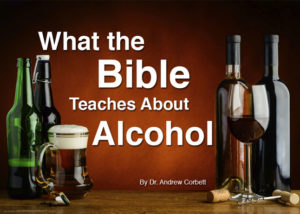 The Bible is black and white about certain issues such as murder, lying, property rights, and interpersonal relationships. But there are some issues that Christians feel very strongly about such as family values, hygiene, church attendance and fashion, that the Bible appears not to be very categorical about. Another issue that stirs emotions ranging from anger and disgust, to, indifference and carelessness, is the use of alcohol.
The Bible is black and white about certain issues such as murder, lying, property rights, and interpersonal relationships. But there are some issues that Christians feel very strongly about such as family values, hygiene, church attendance and fashion, that the Bible appears not to be very categorical about. Another issue that stirs emotions ranging from anger and disgust, to, indifference and carelessness, is the use of alcohol.
THE DANGER OF LEGALISM
In discussing the issue of alcohol I want to avoid two dangerous extremes. Firstly, man-made legalism which teaches that the salvation Christ purchased through His blood shed on the cross, and received by putting our faith in Him, is in doubt if we break a man-made rule. Secondly, antinomianism (a license to sin) where a person is under no obligations whatsoever to walk worthy of the salvation that Christ offers. In relation to alcohol, I want to stress that their various opinions among Christians that are worthy of respect. Throughout history there have been some very godly and influential Christians who have drunk alcohol (for example, Martin Luther used to brew and drink his own beer, Charles Spurgeon also drank hard liquor), and other equally great and influential Christians who were temperate (non-drinkers).
One of the reasons I have never preached on the subject of alcohol is my concern that some people who hold very passionate views either way and will make this an issue for our mutual fellowship. I’m reminded that doctrines never divide, only attitudes do. I trust that we are mature enough to perhaps disagree yet enjoy fellowship with each other.
Therefore, in stressing the main points of this article I need to stress that if someone disagrees with these findings and conclusions found here, I am not suggesting that their salvation is in question, or that they are not striving to live a liberated and godly life. I have endeavoured to avoid these two deadly extremes of legalism and antinomianism in presenting this article.
.
DEALING WITH BIBLICAL GREY AREAS
He who regards one day as special, does so to the Lord. He who eats meat, eats to the Lord, for he gives thanks to God; and he who abstains, does so to the Lord and gives thanks to God… (v. 22) So whatever you believe about these things keep between yourself and God. Blessed is the man who does not condemn himself by what he approves.(v. 23) But the man who has doubts is condemned if he eats, because his eating is not from faith; and everything that does not come from faith is sin.
Romans 14:6 NIV
The New Testament presents the believer with certain issues that are grey areas where the believer should decide for themselves whether they are tight or wrong. Eating meat, drinking alcohol, and observing a rest day as holy to the Lord, are a matter of conscience. To assist the believer’s conscience come to a “fully persuaded” Biblical position it is helpful, if not inevitable, that a survey of what the Bible says is needed. In this sense then because these issues are grey, there is no one passage that deals with it. We therefore have to examine the overall Biblical presentation of an issue to formulate a clear “fully persuaded” position.
There are certain issues that the Bible seems to approve of, but many believers would clearly condemn. For example: polygamy (being married to more than one person at a time).
If a man has two wives, and he loves one but not the other, and both bear him sons but the firstborn is the son of the wife he does not love…
Deuteronomy 21:15 NIV
We could justify polygamy (the marriage to more than one spouse) by pointing to Biblical characters who practised polygamy, such as Abraham, Jacob, and David. We could say that the New Testament nowhere condemns polygamy, it simply says that a man could not be an elder in a church if he was the husband of more than one wife (1Timothy 3:2 NIV – Now the overseer must be above reproach, the husband of but one wife, temperate, self-controlled, respectable, hospitable, able to teach).
Yet when we take an overall look at the Biblical presentation of polygamy, we see that it paints polygamy as being fraught with moral, spiritual, material, and physical danger. Polygamy was the downfall of Patriarchs, Kings, and common men alike. It led to family schisms that often resulted in treachery and even murder. Clearly, the overall presentation of polygamy is to condemn it. This condemnation is doubly subtle when you consider the parallels that Bible makes about monogamous marriages. It uses Adam and Eve, God and Israel, Christ and the Church as examples and models of godly marriages. I trust that you can see some principles here in the way the Bible should be interpreted: where the Scripture seems to silent, we need to closely note its overallmessage. We are therefore endeavouring to employ principles of interpretation, rather than seeking to uncover obscure Biblical laws.
THE OVERALL PRESENTATION
The use of alcohol can be viewed just like we view polygamy. We will survey what the Bible has to say about the use of alcohol, in much the same way that we have done with what it says about polygamy. By using these principles of ascertaining a Biblical position, we will see that the principles for determining whether alcohol usage is compatible with Christianity are identical other similar issues such as smoking (nicotine), illicit drug usage, pharmaceutical abuse, and other substance abuses.
The first mention of alcohol in the Bible deals with the shaming of Noah, and the subsequent mockery by his son Ham.
Noah, a man of the soil, proceeded to plant a vineyard. When he drank some of its wine, he became drunk and lay uncovered inside his tent.
Genesis 9:20 21 (NIV)
This was a foolish indiscretion on the part of Noah. It resulted in his son being cursed, and a family division between the brothers that led to the generational Israel-Philistia conflicts. The next major reference to the use of alcohol in Scripture is when the daughters of Lot got their father drunk.
One day the older daughter said to the younger, “Our father is old, and there is no man around here to lie with us, as is the custom all over the earth. Let’s get our father to drink wine and then lie with him and preserve our family line through our father.” That night they got their father to drink wine, and the older daughter went in and lay with him. He was not aware of it when she lay down or when she got up.
Genesis 19:31-33 (NIV)
This use of alcohol resulted in incest and the formation of a nation that caused Israel many problems. The next major reference to alcohol use is found in Leviticus 10 where Nadab and Abihu enter their priestly service drunk and mock the holy offerings. God strikes them dead. The Lord then gives this warning-
“You and your sons are not to drink wine or other fermented drink whenever you go into the Tent of Meeting, or you will die. This is a lasting ordinance for the generations to come.”
Leviticus 10:9
In the Book of Numbers, the Lord instructs people how to fully commit themselves to Him.
Speak to the Israelites and say to them: ‘If a man or woman wants to make a special vow, a vow of separation to the LORD as a Nazirite, he must abstain from wine and other fermented drink and must not drink vinegar made from wine or from other fermented drink…’
Numbers 6:2-3a (NIV)
It should be stressed in the midst of these major references, there are other references to alcohol being used in offerings. It was an ingrained part of the culture, in much the same way that polygamy was. But when God would put His blessing on someone, it was said so that an expression of prosperity was used: abundant grain and new wine. For example, Isaac’s blessing of Jacob.
May God give you of heaven’s dew and of earth’s richness– an abundance of grain and new wine.
Genesis 27:28 (NIV)
It’s worth noting that the blessing was for “new wine”, (Hebrew word: tiyrowsh), which was different to fermented wine (Hebrew word, yayin). New wine was sweet, freshly squeezed grape juice. Interestingly, every reference to God’s blessing expressed as abundant grain and wine always refers to tiyrowsh, unfermented, sweet grape juice.
When Samson was dedicated to the Lord, he was not to drink alcohol.
Judges 13:4 (NIV)
Absalom, son of King David, was able to murder his brother because Amnon got drunk.
Absalom ordered his men, “Listen! When Amnon is in high spirits from drinking wine and I say to you, ‘Strike Amnon down,’ then kill him. Don’t be afraid. Have not I given you this order? Be strong and brave.”
Second Samuel 13:28 (NIV)
Proverbs talks about alcohol.
Wine is a mocker and beer a brawler; whoever is led astray by them is not wise.
Proverbs 20:1 (NIV)
He who loves pleasure will become poor; whoever loves wine and oil will never be rich.
Proverbs 21:17 (NIV)
Do not join those who drink too much wine or gorge themselves on meat,
Proverbs 23:20 (NIV)
29 Who has woe? Who has sorrow? Who has strife? Who has complaints? Who has needless bruises? Who has bloodshot eyes? 30 Those who linger over wine, who go to sample bowls of mixed wine.31 Do not gaze at wine when it is red, when it sparkles in the cup, when it goes down smoothly!32 In the end it bites like a snake and poisons like a viper.33 Your eyes will see strange sights and your mind imagine confusing things.34 You will be like one sleeping on the high seas, lying on top of the rigging.35 “They hit me,” you will say, “but I’m not hurt! They beat me, but I don’t feel it! When will I wake up so I can find another drink?”
Proverbs 23
(4) “It is not for kings, O Lemuel– not for kings to drink wine, not for rulers to crave beer, (5) lest they drink and forget what the law decrees, and deprive all the oppressed of their rights. (6) Give beer to those who are perishing, wine to those who are in anguish; (7) let them drink and forget their poverty and remember their misery no more.
Proverbs 31
Isaiah…
Woe to those who rise early in the morning to run after their drinks, who stay up late at night till they are inflamed with wine.
Isaiah 5:11 (NIV)
Woe to those who are heroes at drinking wine and champions at mixing drinks,
Isaiah 5:22 (NIV)
And these also stagger from wine and reel from beer: Priests and prophets stagger from beer and are befuddled with wine; they reel from beer, they stagger when seeing visions, they stumble when rendering decisions.
Isaiah 28:7 (NIV)
In Jeremiah 35, the prophet is told to honour the Rechabites for abstaining from alcohol-
But they replied, “We do not drink wine, because our forefather Jonadab son of Recab gave us this command: ‘Neither you nor your descendants must ever drink wine.’”
Jeremiah 35:6 (NIV)
‘Jonadab son of Recab ordered his sons not to drink wine and this command has been kept. To this day they do not drink wine, because they obey their forefather’s command. But I have spoken to you again and again, yet you have not obeyed me.
Jeremiah 35:14 (NIV)
In reforming Temple worship, God requires this of His priests-
No priest is to drink wine when he enters the inner court.
Ezekiel 44:21 (NIV)
Daniel refused to drink wine.
Daniel 1:8 (NIV)
The prophet Amos laments over Israel’s use of wine –
You drink wine by the bowlful and use the finest lotions, but you do not grieve over the ruin of Joseph.
Amos 6:6 (NIV)
THE OLD TESTAMENT REVELATION
The survey that we have just done of the Old Testament about alcohol, presents an overall message that alcohol is neither wise, beneficial, or complimentary to a godly life. It must be remembered that this is presented against the backdrop of where alcohol was as much a part of culture as eating. Yet the Scriptures present it in the light we have just seen.
The phrase “wine and strong drink” is usually found in contexts warning against or forbidding the use of alcoholic beverages (see the following- Lev. 10:9; Num. 6:3; Deut. 29:6; Judges 13:4; 1Samuel 1:15; Isa. 5:11, 22; 22:9. Strong drink is probably beer rather than a distilled liquor…
International Standard Bible Encyclopaedia, page 1069
JESUS AND ALCOHOL
Did Christ drink alcohol? Considering what we know about the overall presentation of alcohol in the Old Testament, it would seem a curious thing if Christ drank fermented (alcoholic) beverages. Especially since He was and is our High Priest –
Therefore, since we have a great high priest who has gone through the heavens, Jesus the Son of God, let us hold firmly to the faith we profess),
Hebrews 4:14
– and that God had strictly forbidden the High Priest from drinking alcohol –
Then the LORD said to Aaron, “You and your sons are not to drink wine or other fermented drink whenever you go into the Tent of Meeting, or you will die. This is a lasting ordinance for the generations to come)
Leviticus 10:8-9
– it would have been extremely unlikely that Christ would have violated such a basic principle of ministering to God. Some people also use the Nazirite vow of Numbers 6 to substantiate that Christ would not have drunk alcohol. This is perhaps a legitimate use of the passage so long as it is understood that Christ was a Nazarene (Matthew 2:23), not a Nazirite, and that the original passage allowed for the extreme possibility of even grape products being fermented themselves, which was increasingly possible due to desert conditions, and lack of refrigeration. This is confirmed when we observe how the Nazirite vow was applied to John the Baptist.
for he will be great in the sight of the Lord. He is never to take wine or other fermented drink, and he will be filled with the Holy Spirit even from birth.
Luke 1:15
Just as in the Old Testament, where there were two distinguishing words for alcoholic wine, and non-alcoholic wine, so it is that many scholars believe it is with the New Testament. “New Wine” was grape juice that had not been given the time for the sugars in the juice to ferment. The ancients could chill grape juice wine for extended periods of time by placing the wine into skins, tying a rope around it, and dropping it into a cool stream suspended from a tree, to prevent it from becoming fermented. “Wine” in the New Testament is the Greek word: oinos. This word can be either alcoholic wine, or non-alcoholic wine. For example, there are Scriptures which warn against mis-use of oinos which would acknowledge the Bible’s dual use of this word (Eph. 5:18; Rom. 14:21; 1Tim. 3:8; Titus 2:3- which all imply drunkenness from oinos). But the Greek word for wine which always refers to alcoholic wine (gleukos) is never used of non-alcoholic wine.
G1098. γλεῦκος gleukos, glyoo´-kos; akin to 1099; sweet wine, i.e. (properly) must (fresh juice), but used of the more saccharine (and therefore highly inebriating) fermented wine: — new wine.
STRONG’S Greek Dictionary
There is enough classic literature from antiquity to show that oinos was most commonly non-alcoholic. It was usually condensed through evaporation (either over a flame, or naturally) into a honey-like concentrate that could be rehydrated at a later time. In the Odessey, an ancient Greek tale, the central character sets sail on a ship that takes him on an epic journey. His fluids are sustained as he dilutes the wine-concentrate into oinos (non-alcoholic).
The most common mixture was wine diluted with water. The ratio of water to wine varied, but the quantity of water was almost always greater than that of wine. The favoured mixture for the Greeks was one part wine and three parts water…During Roman times the ordinary table beverage was wine mixed with water (see Ferguson). Since the water was not completely safe to drink, mixing wine with water had a purifying effect on the water (cf. 1Tim 5:23).
International Standard Bible Encyclopaedia, page 1070
Interestingly, Christ’s first miracle also involved water becoming wine (oinos).
Once more he visited Cana in Galilee, where he had turned the water into wine (oinos). And there was a certain royal official whose son lay sick at Capernaum.
John 4:46
This is the wine that Jesus drank. The New Testament has another word that scholar James Strong in the Strong’s Concordance says is used for alcoholic wine: gleukos. This was wine where the sugars had been allowed to ferment it. Strong’s Concordance defines this word for wine as highly intoxicating, fermented wine. On the Day of Pentecost, the disciples are accused of having been drinking too much wine, gleukos, not oinos.
Some, however, made fun of them and said, “They have had too much wine (gleukos).”
Acts 2:13
NEW TESTAMENT TEACHING
The question isn’t really – Can a Christian drink alcohol? but, Should a Christian drink alcohol? As I stated at the commencement of this study, your conclusions to this matter have a direct bearing on other issues such as, smoking, illicit drug-use, and prescribed pharmaceutical abuse (if one is striving for consistency). Are we free to do these things? Apparently. Will these issues veto our salvation in Christ? No. Are there Christians who feel strongly that these matters are definitely wrong? Yes. Are there Christians who believe that a person’s salvation is in doubt if a believer lives a lifestyle incorporating these things? Yes there are. Therefore, should Christians who feel free to participate in these matters flaunt their freedom, either privately or publicly? To this, the New Testament says-
It is better not to eat meat or drink wine or to do anything else that will cause your brother to fall.
Romans 14:21
So whether you eat or drink or whatever you do, do it all for the glory of God.
First Corinthians 10:31
A study on alcohol itself is another matter altogether. Suffice to say, I will note the following facts about alcohol itself-
- In 1991 Australia had the second highest per capita consumption of alcohol in the English speaking world (New Zealand was the highest)
-
In 1997, 3700 Australians died from the effects of alcohol (AIHW, 1999, Media Release: Drug Use In Australia and Its Impact, 31st March 1999)
- 91% of alcohol consumed by the human body is processed by the liver which has no mechanism for handling it
- Alcohol affects the brain (loss of memory and brain injury), the muscles (loss of muscle tissue), the heart (high blood pressure), the lungs (increases the likelihood of infection), the stomach (ulcers), the intestines (ulcers), the nervous system (tingling and loss of sensation in the hands and feet), the skin (flushing, sweating, and bruising), the liver (severe swelling and pain, hepatitis, and cirrhosis), the pancreas (pains), the testicles of men (shrinking), and increases the risk of foetal damage to pregnant women.
But doesn’t the Bible teach that a little wine is good for us?
Stop drinking only water, and use a little wine because of your stomach and your frequent illnesses.
First Timothy 5:23
To this we note that it is now scientifically documented that grape juice, not alcoholic wine, has some beneficial health qualities. It is also worth noting that Paul instructed Timothy to drink oinos, not gleukos. For those who feel that too strong a case is being made over Greek words, there is the possibility of oinos being mildly fermented- to which the Scriptures give this warning-
Do not get drunk on wine, which leads to debauchery. Instead, be filled with the Spirit.
Ephesians 5:18
There is only one guaranteed way to avoid drunkenness, and that’s to not start drinking. This verse also answers those who say that they drink to relax/forget their troubles/ease their pain, since we have these needs met by the Spirit of God. A person doesn’t need alcohol to be happy. In fact alcohol is actually a depressant. The Psalmist could say –
You have filled my heart with greater joy than when their grain and new wine abound.
Psalm 4:7
WHAT NOW?
I have sought to give some Biblical and natural reasons for not drinking. I realise that there are people who have strong and differing views about these matters. But I trust that this has given you some food for thought, and that you can come to a position of being fully persuaded in your own mind about these matters. I believe that it is advisable for Christians not to drink. Too many missionaries have been sent back home as alcoholics from cultures where drinking was integral to the culture, after having been told that alcohol was amoral and only subject to cultural context. I believe that Scriptures present the believer with alcohol as being allowable, but strongly unadvisable. I believe the Christian loses nothing by refusing to drink alcohol, but gains much by the same position.
Amen.
© 2000, Andrew Corbett, Legana Tasmania [Printable Edition]
![]() Dr. Andrew Corbett, Legana, Tasmania, updated February 26th 2008
Dr. Andrew Corbett, Legana, Tasmania, updated February 26th 2008
I have written a fuller explanation of the book of Revelation in my eBook- THE MOST EMBARRASSING BOOK IN THE BIBLE (click here to read a preview). The application from the Book of Revelation is that despite what appears to be an impotent Church struggling to serve an apparently impotent Christ, the Church is in reality made up of overcomers who lay down their lives gladly to promote Christ and His Gospel. In so doing, the Kingdom of Christ is extended, prayers are offered and heard, miracles are graced, and the believer can die with infinite hope that their Lord will keep them for eternity and clothe them with a new body which can not be subject to pain, injury, sorrow, or sin. With this knowledge we can endure momentary hardship during the brevity of this life on earth. We can be assured that our greatest delights and deepest moments of fulfilment are yet to come in the life to come.
John 5:25 ¶ “Truly, truly, I say to you, an hour is coming, and is now here, when the dead will hear the voice of the Son of God, and those who hear will live.

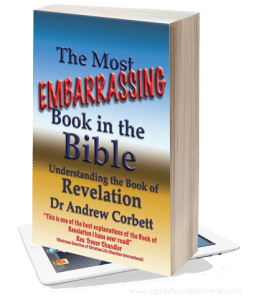




































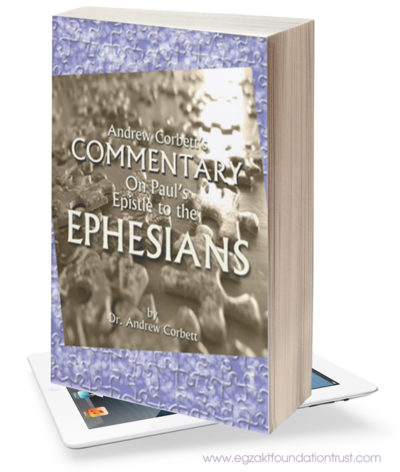
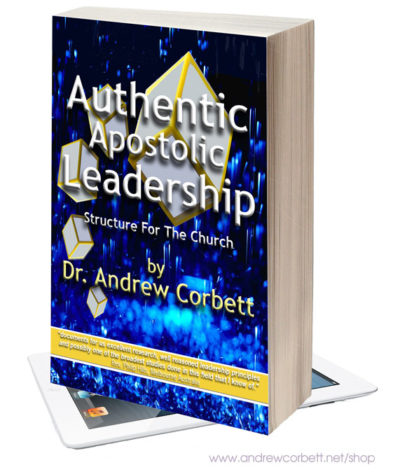


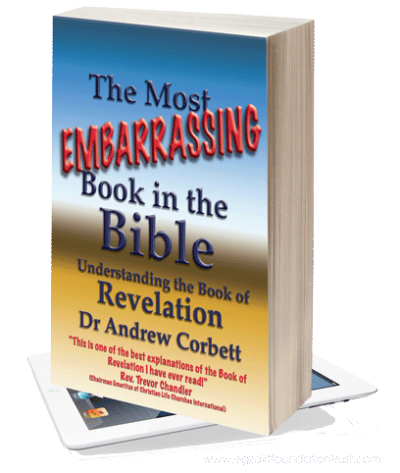
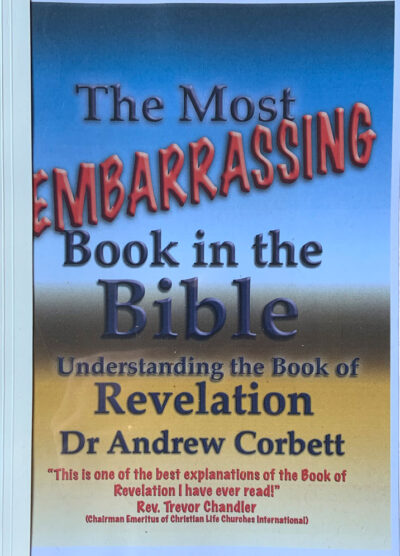

I found this write-up so useful. More grace to the writer in Jesus’ name! May the LORD keep his feet unshaken till the end!
I found your article to be very useful and have very strong points. my problem is on the Greek words ‘oinos’ and gleukos. This is according to Strong concordance “1098. gleukos ▻. Strong’s Concordance. gleukos: sweet new wine. Original Word: γλεῦκος, ους, τό. Part of Speech: Noun, Neuter Transliteration: gleukos”.
I do not doubt you, but for me to be able to use your strong point: may you please provide with reference to the documents that show gleukos is alcoholic and oinos was a general wordd for wine and may mean either . I will appreciate very much if you can help me in that. Otherwise thank you very much this was an article I was seeking because it answers alot of my questions.
Hi Lucas. Thank you for your comment and question. The case for caution does not rest on the intonation of these Greek words for ‘wine’. Yet, there does appear to be a Biblical distinction made between them. In the article, I cite Strong’s Dictionary where the distinction is made between oinos and gluekos. The same distinction is made in the International Standard Bible Encylcopaedia, Volume 4, page 1069. In addition to this, consider also-
“Fermented wine was not the only kind of wine in the ancient world, as evidenced by our ancient sources. The Roman write Pliny speaks of a product called SAPA, made by boiling grape-juice to one-third its volume, and of another drink made by diluting grape-juice, then boiling off the water.” – J.P. Free, Archaeology And The Bible History, pg. 354.
Blessings,
Andrew C.